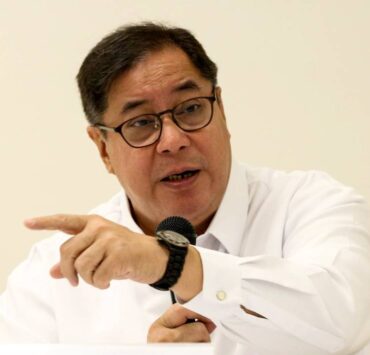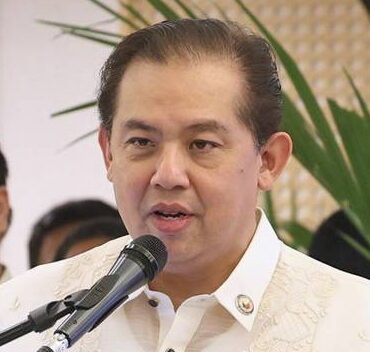F. Sionil Jose’s iconic bookshop up for sale

Solidaridad Bookshop, the iconic establishment of National Artist Francisco Sionil José, is now on the market, according to a report by a university organ.
The information disclosed by the oldest of José’s seven children, Antonio “Tonet” José, was also based on a Saturday story by the Varsitarian, the official student publication of the University of Santo Tomas (UST) where the late fictionist and essayist studied and also taught after retiring from journalism.
“Yes, we are selling it. We would like that whoever buys it will continue Solidaridad Bookshop,” Antonio said as quoted by the Varsitarian.
The bookstore on Padre Faura Street, Ermita, which opened in June 1965, turns 60 this year.
It was named after the Propaganda Movement organization and its namesake biweekly newspaper, and also became the headquarters of the Philippine chapter of International PEN (Poets, Essayists, Novelists), which José founded in 1957.
‘Literary salon’
The author, who died in 2022, told the Inquirer in 2016 that the establishment was owned by his in-laws, an old family in the district of Ermita, Manila.
In its heyday, the bookshop became famous throughout Asia for its variety of first-rate books, including a Filipiniana section displayed at the front of the bookshop—in contrast to the practice of other bookstores at the time which relegated that section to their farthest end.
The second floor served as the administration and finance office and the third floor, which used to be a family space, served as the office of Sionil José’s publishing enterprise—notably his novels and his journal Solidarity—as well as a popular hangout for writers, artists, and even diplomats and senators who visited José.
Solidaridad, indeed, became something of a “literary salon” over the years, attended by political personalities and Filipino and foreign writers for social and political discussions.
Among José’s visitors were Sen. Benigno “Ninoy” Aquino Jr., whose personal library mostly came from Solidaridad; Nobel Prize laureates Wole Soyinka of Nigeria, Gunter Grass of Germany, and Mario Vargas Llosa of Peru; Adam Malik, former foreign minister of Indonesia; Maha Chakri Sirindhorn, princess of Thailand and a Ramon Magsaysay Awardee like José; and National Artist Nick Joaquin, who visited Solidaridad at least once a week and used it as his mail drop.
Politically outspoken
Because José was politically outspoken and also wielded his pen to that pursuit, his establishment had been targeted by harassment, particularly during martial law.
Yet he always expressed support for his fellow writers and defended their actions, including those who worked for the government.
José was known to espouse nationalist views but derided nationalists who worked for corporate interests. In turn, the author and his enterprise were accused of acting as a “front” of the the US Central Intelligence Agency. Even his staff questioned José at one point after noticing that every newly appointed US ambassador had paid him a courtesy call.
Despite these broad accusations, Solidaridad continued to be the meeting place of writers and artists of various political persuasions, including the Left whom José was also rumored to have supported at the height of martial law.
Pioneering establishment
José was working as an information officer for the Colombo Plan in Sri Lanka (then Ceylon) in the early 1960s when he thought of setting up the bookstore, which he originally planned as only a publishing house.
When the bookshop, later expanded into a gallery, was opened in 1965, it was one of the few bookstores in Manila, together with Alemar’s, National Book Store, and Po’s Bookstore in Doroteo Jose Street, Santa Cruz, Manila.
Solidaridad was nearly destroyed in the early 1990s by a fire from a next-door bar-restaurant, but it was rebuilt afterwards. In March 2022 it was vandalized for the first time, leading to academic groups condemning it and Popular Bookstore’s simultaneous vandalism as attacks on critical thinking.
In a Facebook post, professor and historian Jose Victor Torres said Solidaridad was “more than just a shop” as it was also a “home for many writers.”
‘Important Cultural Property’
Sought for comment, UST professor and former Inquirer editor Lito Zulueta said: “Solidaridad has always been associated with Manong Frankie and [his wife] Manang Tessie [Jovellanos-Jose] and their family. Perhaps no family in modern Philippine history aside from the Guerreros have contributed solidly to the country’s cultural enrichment as the Joses.”
One of José’s many ventures as part of the bookshop was his monthly journal Solidarity, which Zulueta described as “probably the first to construct the idea of Southeast Asia as a distinct and dynamic geopolitical, socio-cultural universe.”
Solidaridad also ran an art gallery in the neighboring district of Malate “where today’s modern masters debuted or were featured,” Zulueta said, citing BenCab, Onib Olmedo, Nena Saguil, Jaime de Guzman and Mario de Rivera, among other artists.
“Solidaridad, in fact, was Manila’s cultural center even before the CCP (Cultural Center of the Philippines) was inaugurated in 1969. [This month it turns] 60 and Solidaridad the bookstore and building should at least be declared an ICP or Important Cultural Property.”
“Definitely among us writers, artists, journalists, book lovers and friends and admirers of Manong Frankie, Manang Tessie and the lovely Jose family, Solidaridad is, deep in our hearts, already a National Cultural Treasure,” Zulueta said. —WITH A REPORT FROM INQUIRER RESEARCH

















